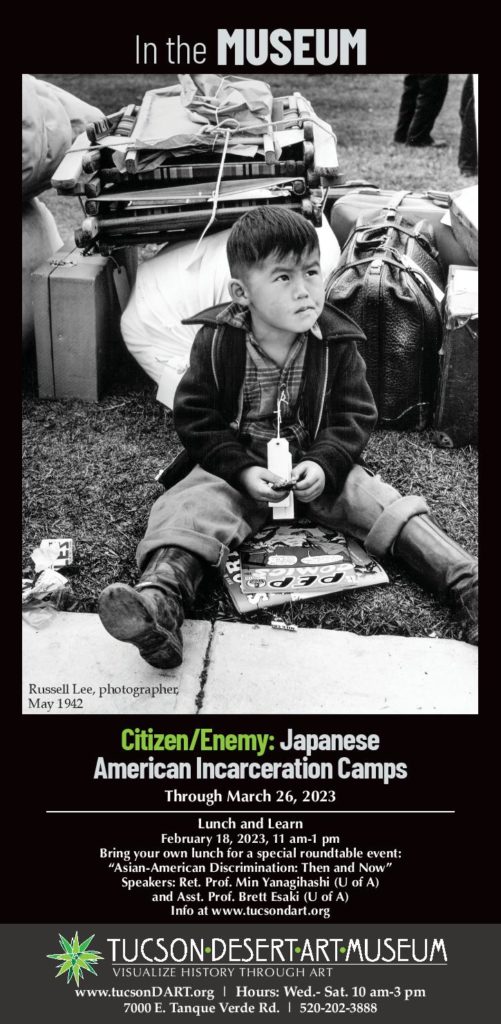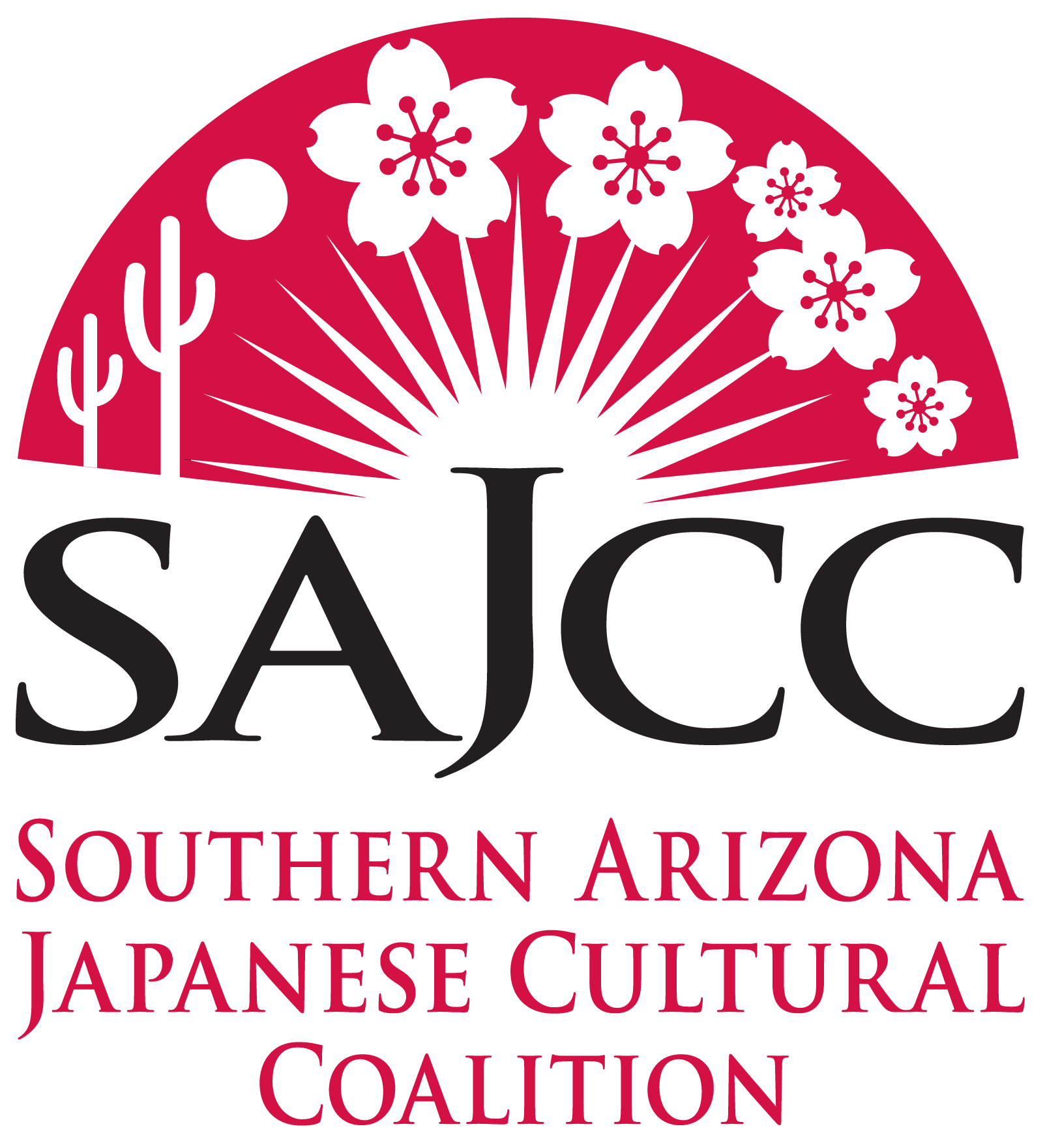To commemorate the 81st anniversary of the signing of E.O. 9066, and to highlight their ongoing exhibit “Citizen/Enemy: Japanese American Incarceration Camps”, the Tucson Desert Art Museum is hosting a lunch & learn panel discussion on Feb. 18, 11 a.m. to 1 p.m.
Panelists are retired UA Prof. Min Yanagihashi and current UA Prof. Brett Esaki (descendant of camp internees), who will address the civil rights violations of the Japanese Americans interned during WWII, and the current situation today for Asian Americans. The topic “Asian American Discrimination: Then and Now” is relevant today with ongoing incidents of Asian Hate in America,
The Museum is located at 7000 E. Tanque Verde Rd. in Tucson.

“On February 18, 2023, the Tucson Desert Art Museum will host a special roundtable event entitled “Asian-American Discrimination: Then and Now” to commemorate the annual Day of Remembrance for Japanese American Incarceration during World War II on February 19. The event will be held from 11 am to1 pm and attendees are encouraged to bring their own lunch.
Retired Professor Min Yanagihashi and Assistant Professor Brett Esaki from the University of Arizona will be guest speakers. They will provide insight and historical context on the internment of Japanese Americans during World War II, its ongoing legacy in the United States, and current-day prejudice against Asians in light of
COVID-19. The event aims to educate and raise awareness about the history and current issues of discrimination against Asian Americans.
This event is in support of the exhibition “Citizen/Enemy: Japanese American Incarceration Camps” currently
on display at the Tucson Desert Art Museum through March 26, 2023. “Citizen/Enemy” confronts an uncomfortable period in American history, when the 1941 Japanese attack on Pearl Harbor led to the relocation of 120,000 Japanese Americans to incarceration camps. The exhibition features historic documents, installations, and large-scale images from noted photographers Dorothea Lange and Russell Lee, offering a
guide for reflection on this tragic political action and its repercussions for Japanese Americans.”

